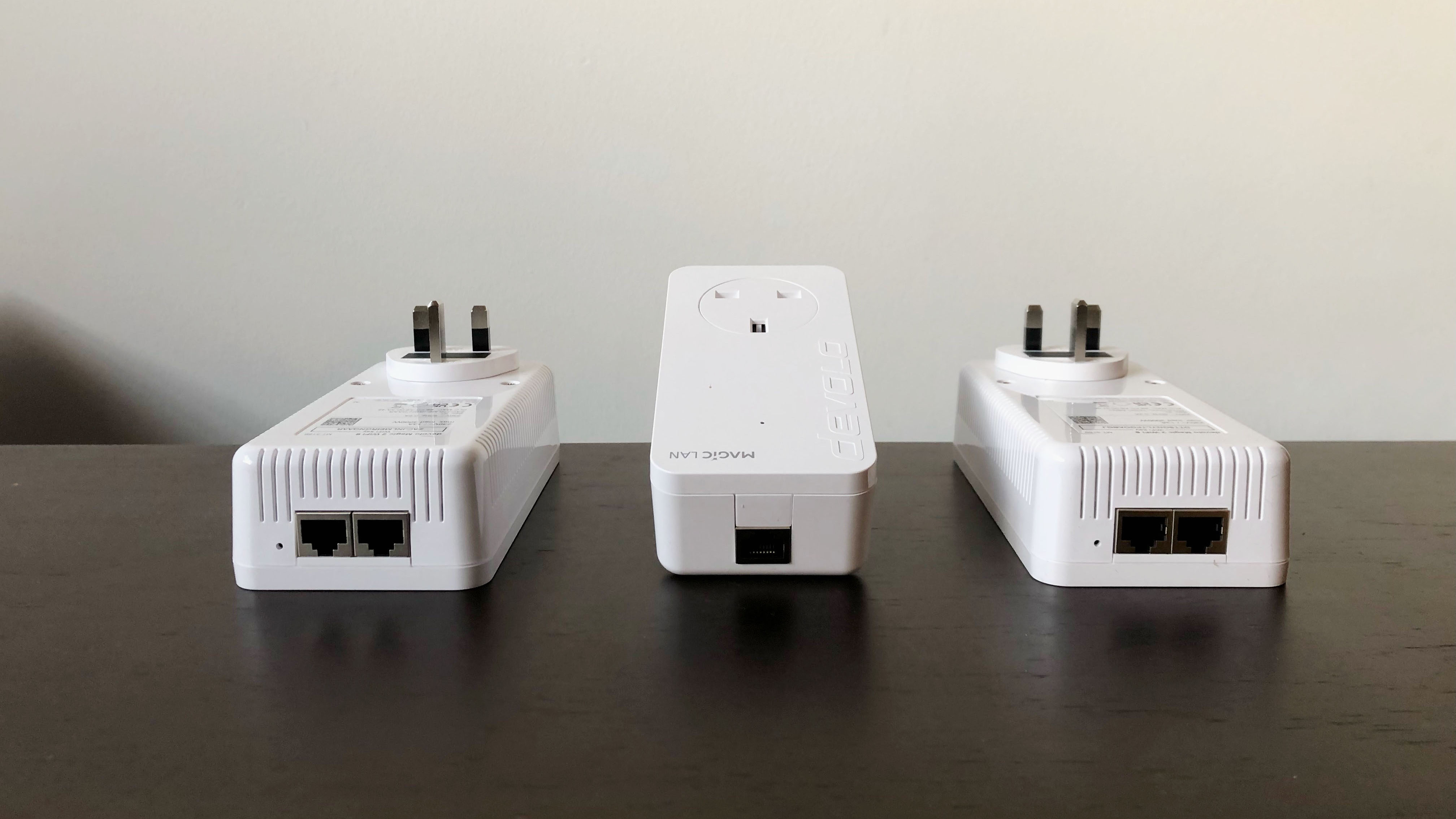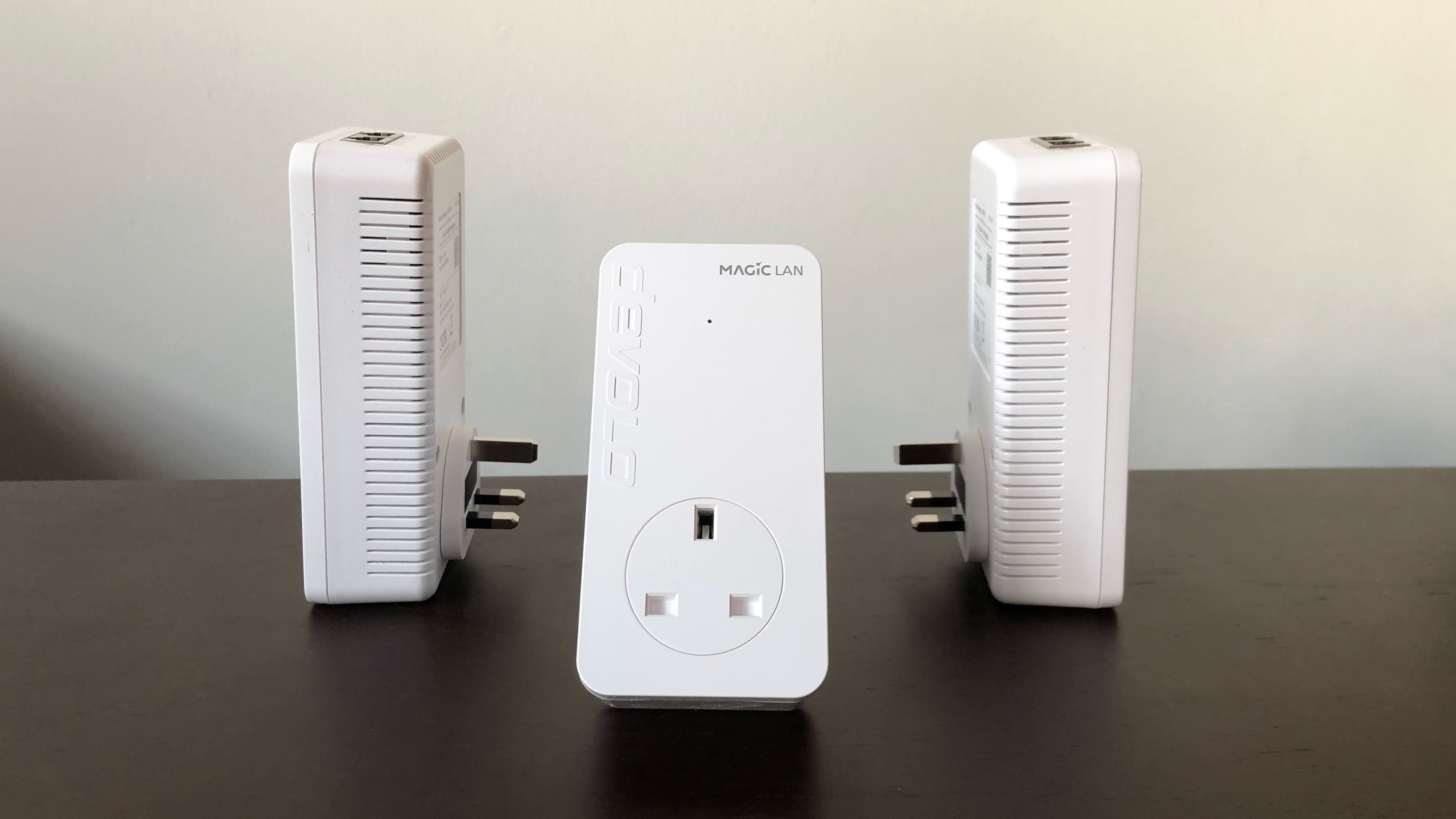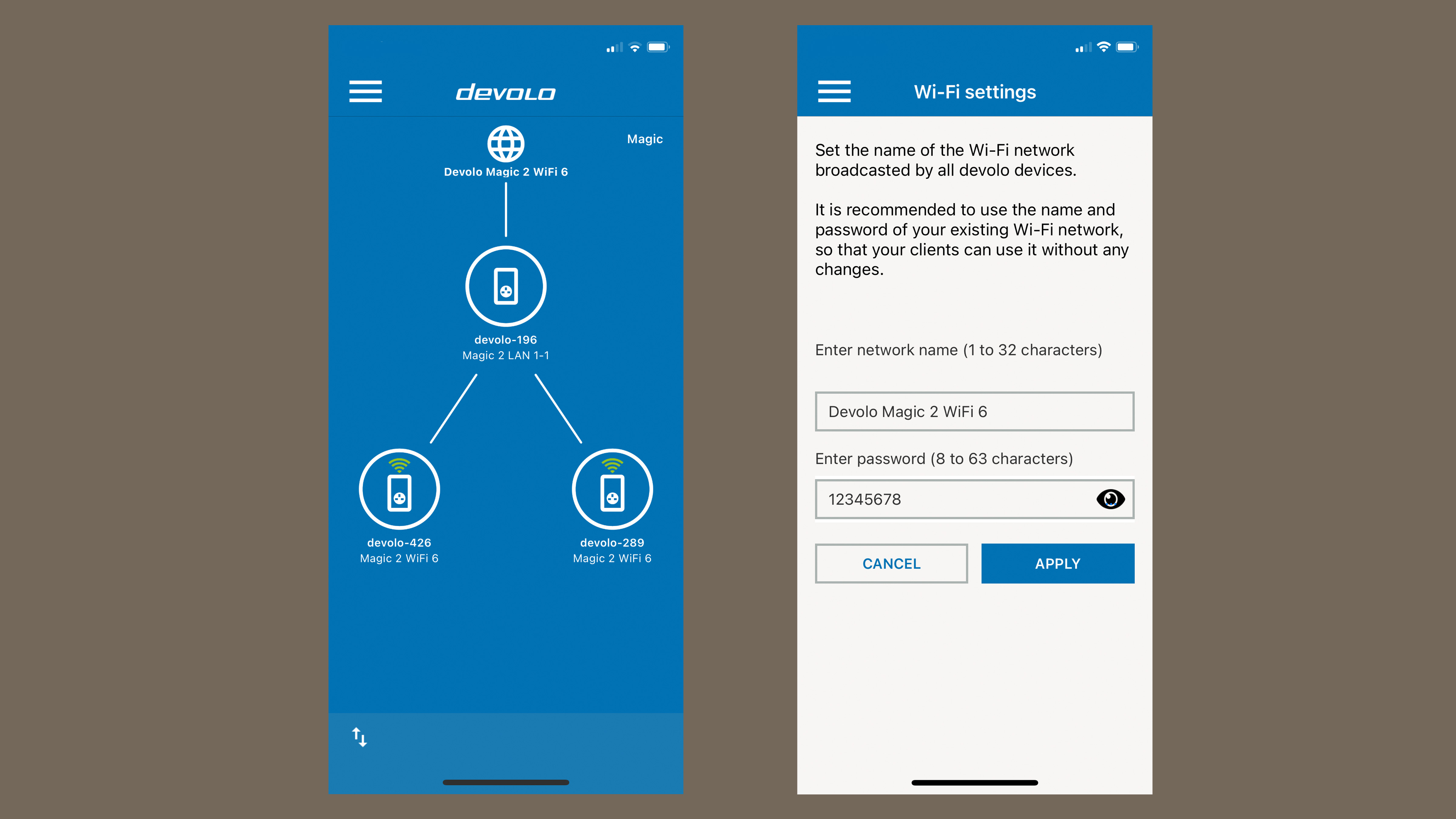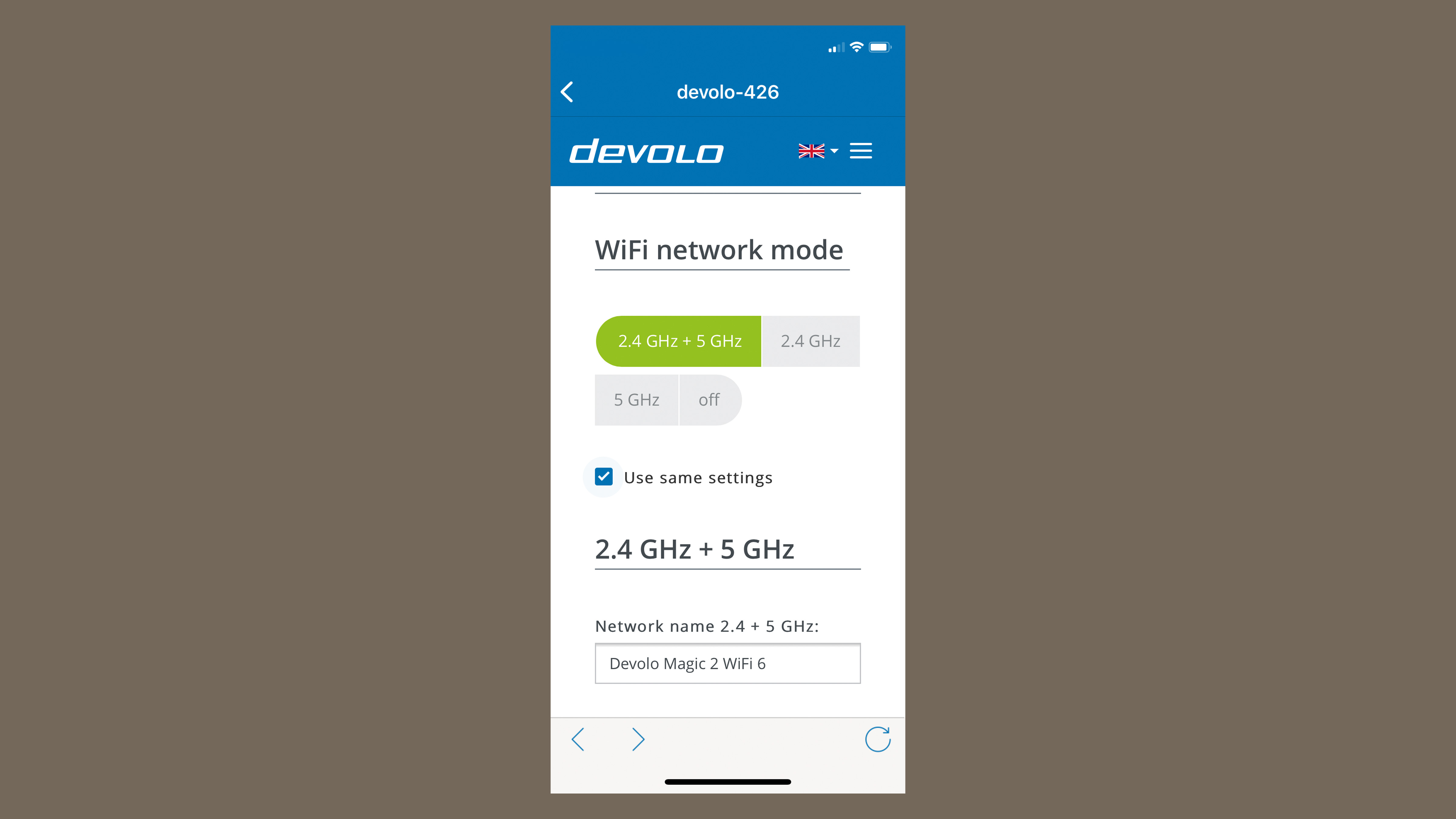Devolo Magic 2 WiFi 6
Two-minute review
Mesh Wi-Fi systems have been selling like hotcakes over the last couple of years, as millions of people around the world now rely on their home Wi-Fi for working from home every day, and endless hours of streaming video, music and games for entertainment. Mesh systems can be pretty expensive though - especially systems that use the new Wi-Fi 6 standard - and there are still occasions when a mesh network might not be the ideal solution for every home.
Many homes have thick walls, ceilings, or other obstacles that can block even the fastest wi-fi signal, and that’s where powerline products such as Devolo’s Magic range can be a lifesaver. It’s an apt name as powerline technology has always seemed like magic to me, allowing you to transmit network data from room to room using your the existing mains electrical wiring in your home.
Devolo is a specialist in the powerline field, and many of its products focus just on powerline alone. However, its Magic range combines powerline adaptors with additional wi-fi features, and - as the name suggests - its new Magic 2 WiFi 6 has now adopted the latest Wi-Fi 6 standard.
That combination of features doesn’t come cheap though, with prices starting at £199.99 (AU $375.00) for a kit that contains two adaptors, while we tested the Whole Home Kit, which provides three adaptors for £349.99 (AU $647.00). The Magic 2 WiFi 6 hasn’t been launched in the US just yet, but prices should be approximately $240 for the Starter Kit, and $420 for the Whole Home Kit.

Design and features
The design of the Magic 2 WiFi 6 hasn’t changed much from the previous model that used Wi-Fi 5 - and which is still available, so make sure you buy the right model. The adaptors look rather like big chunky plugs that can be inserted directly into any mains power socket and, helpfully, they also include a pass-through socket, which allows you to keep using that mains socket to provide power to other devices.
But while the three adaptors in the Whole Home Kit look almost identical, there are some key differences between them. The first adaptor is actually slightly smaller than the other two, and has a single Gigabit Ethernet port on top, which allows you to connect the adaptor to your existing modem or router so that it can use your existing Internet connection.
That, of course, means that the first adaptor needs to be plugged into a mains socket close to your router, and it can then transmit data to the other adaptors using your home’s existing electrical wiring, with a top speed of 2.4Gbps.
The other adaptors can be plugged into mains sockets in any room - such as a home-office - that has trouble getting a good Wi-Fi signal. These additional adaptors have two Ethernet ports each, allowing you to provide wired network connections for devices such as a games console or set-top box that might work better with a lag-free wired connection.
And, in addition, these adaptors can also transmit their own Wi-Fi signal, using dual-band Wi-Fi 6 on the 2.4GHz and 5.0GHz bands. Their Wi-Fi speed is relatively modest at 1.8Gbps, but that’s still more than adequate for most domestic broadband services.

Performance and getting started
There are two options when getting started with the Magic 2 WiFi 6. Beginners can simply download the Devolo Home Network app and allow the app to guide them through the initial set-up process, but there’s also a web browser interface available for more experienced users if they want more precise control over the network settings.
We were pleased to find that Devolo has updated its app since our last Magic review, and this time around the app automatically detected all three adaptors as soon as we plugged them in, and then linked them all together.

The app does a good job at keeping things simple, too. By default, it merges the adaptors’ 2.4GHz and 5.0GHz bands into a single network, and also allows that new network to use the same name and password as your existing Wi-Fi network.
But, if you want more control, the app also allows you to separate the two bands and create two separate Wi-Fi networks with their own names and passwords.

The first adaptor that is connected to your existing router doesn’t provide its own Wi-Fi signal, so it doesn’t make any difference to the Wi-Fi performance in that room. But, as I mentioned, I have a working-from-home office that always struggles to get a good Wi-Fi signal.
I normally rely on an old set of powerline adaptors to provide a wired connection for my office computer, but the hybrid Magic 2 WiFi 6 can provide both powerline and wi-fi connectivity that lets me go completely wireless in that office at long last. The Magic 2 WiFi 6 doesn’t disappoint either, with both the 2.4GHz and 5.0GHz bands providing download speeds of 100Mbps with the Ookla speed-test, and 12.5MB/s for Steam downloads, which are the fastest speeds supported by my home broadband connection.
Powerline adaptors such as these don’t provide the ‘whole home Wi-Fi’ of a more comprehensive mesh networking system. But if you need to improve the Wi-Fi in a specific location - such as a home office or an upstairs bedroom - then the combination of powerline and Wi-Fi connectivity provided by the Magic 2 WiFi 6 could be the ideal solution.
Buy it if...
You live in an old building
Older buildings with thick walls can block even the strongest Wi-Fi signal, so a hybrid powerline adaptor that can also extend the reach of your Wi-Fi is a great solution.
You’ve got some spare cash
You’re paying quite a premium for the latest Wi-Fi 6 tech. There are cheaper powerline kits that still use the older Wi-Fi 5, or simply rely on powerline alone to give you a wired connection.
You need wired connections
The Magic 2 WiFi 6 adaptors also provide two Gigabit Ethernet ports for wired connections. That might be better than Wi-Fi for devices, such as a games console or smart-TV, that prefer a lag-free wired connection.
Don't buy it if...
You're on a budget
The Magic 2 WiFi 6 is a top-of-the-range powerline kit, but my office computer has been using a low-cost powerline adaptor - with no Wi-Fi features - for years.
You've got lots of bedrooms
Powerline adaptors are great for fixing the Wi-Fi in just one or two specific rooms, but if you want to improve the Wi-Fi across your entire home then a more far-reaching mesh networking system might be the best option.
You're a gamer
The 2.4Gbps powerline connection will be more than adequate for most homes, but if you’re a gamer who needs split-second precision then you might prefer a faster router or mesh system to give you the edge.
- These are the best powerline adaptors
0 comments:
Post a Comment